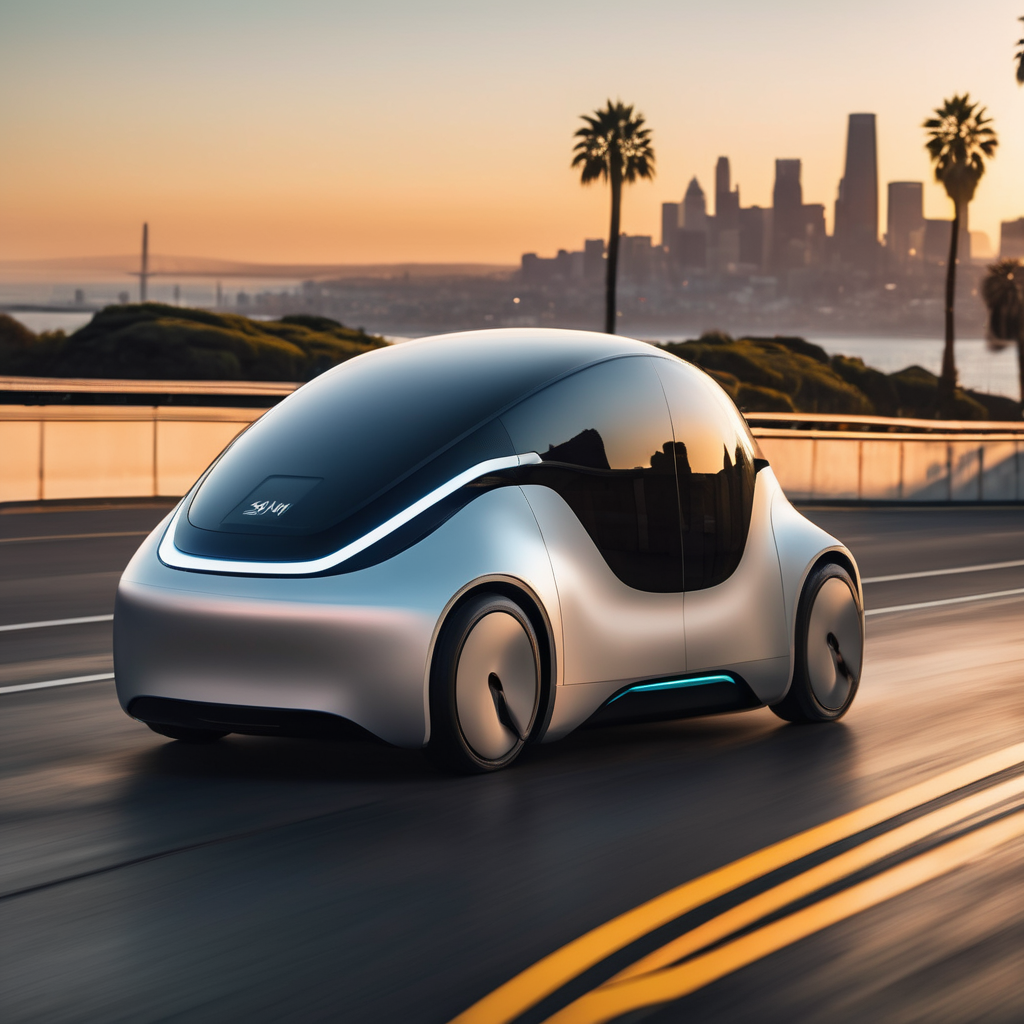Waymo has officially expanded its fleet of self-driving vehicles to include routes along the interstate, marking a significant advancement in its ride-hailing services. Beginning Wednesday, select passengers in the San Francisco Bay Area, Los Angeles, and Phoenix can now enjoy rides across a 260 square mile region that stretches from San Francisco to San Jose, navigating through California’s notable Silicon Valley, including cities like Mountain View, Palo Alto, and Sunnyvale.
This gradual rollout is designed to prioritize riders who have previously opted in to test new features via the Waymo app. However, the company has not disclosed how many passengers are currently eligible or when the service will be available to the broader public.
Mykel Kochenderfer, director of the Stanford Intelligent Systems Laboratory, emphasized the importance of this milestone, stating that it has been awaited for decades. While freeway driving is generally more predictable than navigating city streets, he cautioned that higher speeds can increase the potential severity of accidents. According to Kochenderfer, this expansion could serve as a pivotal moment for not only Waymo but for the entire autonomous vehicle industry, suggesting that a serious incident could stunt advancements in this technology.
Waymo, a subsidiary of Google, is currently one of six companies in California authorized to test autonomous vehicles without a safety driver present. It holds a unique deployment permit from the California DMV, allowing it to pick up paying customers without human oversight. The company began offering paid rides in San Francisco in 2023, facing criticism from first responders about unexpected stops by its vehicles that obstructed emergency services.
Even though Waymo has received regulatory approval to operate on highways since last year, it only began conducting internal testing on Bay Area freeways last August. Previously, Waymo conducted similar tests in Phoenix, where it first introduced driverless operations seven months ago.
The expansion also extends to the San Jose Mineta International Airport, becoming only the second airport to offer Waymo service after Phoenix Sky Harbor International Airport, which welcomed the service in November 2022. Dmitri Dolgov, Waymo’s co-CEO, described fully autonomous freeway operations as a significant engineering challenge, highlighting the progress and maturity of the company’s technology.
While many travelers express excitement about the convenience of autonomous rides, opinions remain divided. Some, like traveler Damiera Cruz, see it as a safer alternative, particularly for solo female travelers, while others, such as Los Gatos resident Heather Kiuttu, express reservations about the safety of driverless technology, citing a preference for human oversight.
Waymo’s journey began in Austin, Texas, in 2015, and the company now offers hundreds of thousands of rides weekly across various cities, including San Francisco, Los Angeles, Phoenix, Atlanta, and Austin. Unlike conventional drivers, Waymo’s autonomous vehicles have not been linked to any fatalities, although they have been involved in over 80 injury-related incidents since July 2021, primarily attributed to other drivers on the road.
With over 100 million driverless miles logged since 2019, Waymo is still navigating a path toward broader safety comparisons against human drivers. Despite the small proportion of miles driven by its fleet in relation to the 3 trillion miles Americans travel annually, experts like Kochenderfer note a need for cautious interpretation of safety data.
Waymo is also looking to expand its reach into Miami and Washington, D.C., while negotiations are in progress to introduce its services at airports in San Francisco and Oakland. This latest development signifies a crucial step in the evolution of autonomous vehicle technology, paving the way for potentially safer and more efficient travel options in the future.
